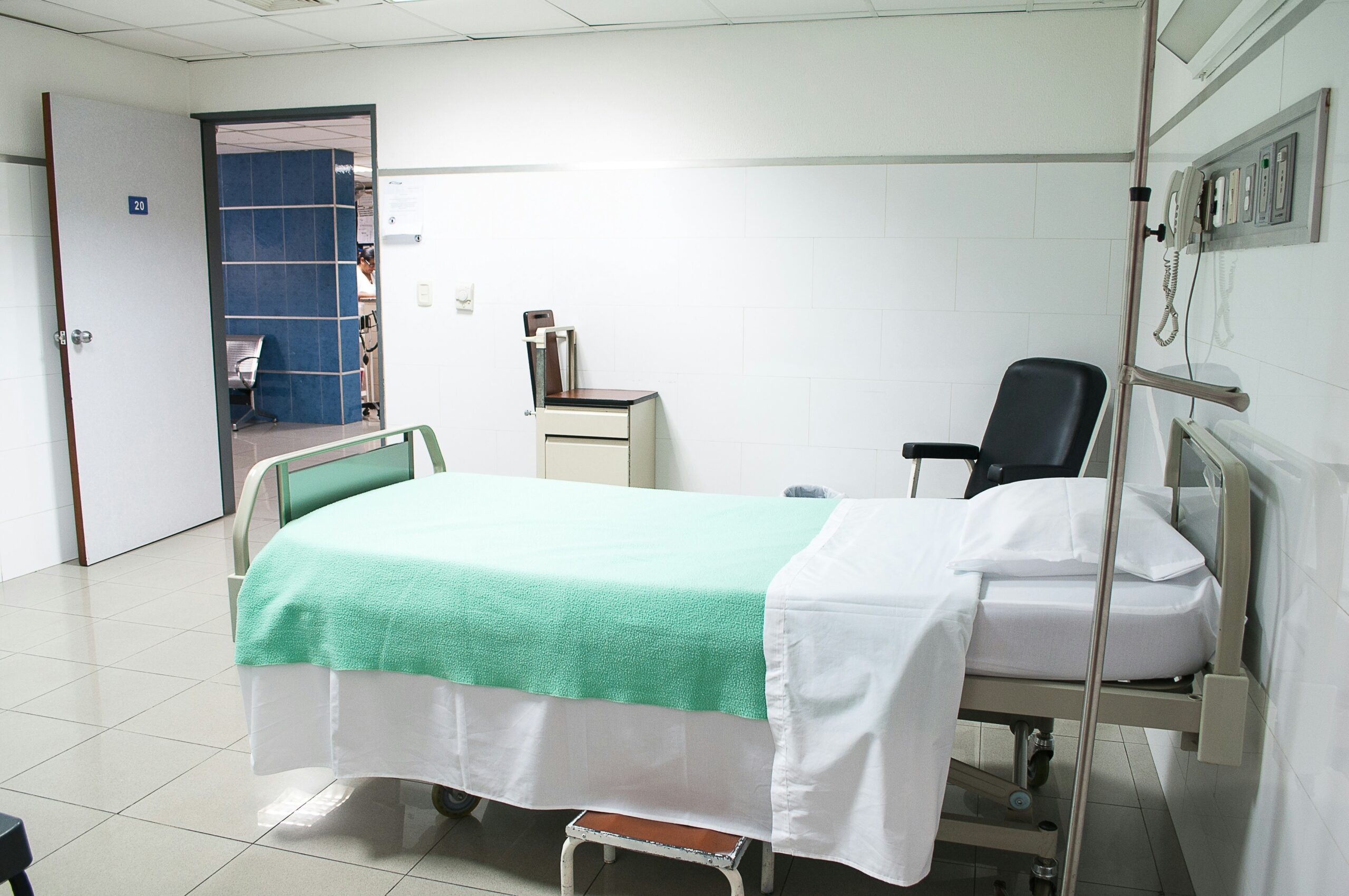After recovering from Covid-19, you may think the worst is over, but unfortunately, for some individuals, it’s just the beginning. It is essential to be aware of the potential health problems that can arise even after beating the virus. From lingering fatigue and shortness of breath to complications affecting the heart, lungs, and brain, this article explores the range of issues individuals may face post-Covid. By understanding these potential health challenges, you can better prepare yourself for a successful recovery and take the necessary steps to maintain your wellbeing.

Long-term effects on respiratory system
The respiratory system is one of the most severely impacted systems after a COVID-19 infection. Many individuals experience lung damage as a result of the virus. COVID-19 can cause inflammation and scarring in the lungs, leading to reduced lung capacity and difficulty in breathing. This lung damage can persist even after the initial infection has cleared, leaving individuals with long-term respiratory issues.
One common long-term effect is a persistent cough. This cough can be dry or produce mucus and can last for weeks or even months after recovering from the virus. The persistent cough can be bothersome and interfere with daily activities, causing discomfort and fatigue.
Another respiratory symptom experienced by many individuals is shortness of breath. Even individuals with mild or asymptomatic cases of COVID-19 may experience this symptom. Shortness of breath can occur during physical activity or even at rest, making it difficult to engage in normal daily activities. It can be a distressing and alarming symptom for those who have never experienced it before.
Cardiovascular complications
COVID-19 can also have significant impacts on the cardiovascular system. The virus can cause damage to the heart muscle, leading to heart-related complications. This can include inflammation of the heart muscle, known as myocarditis. Myocarditis can weaken the heart and result in symptoms such as chest pain, fatigue, and shortness of breath.
In addition to myocarditis, COVID-19 can also cause arrhythmias, which are irregular heart rhythms. Arrhythmias can disrupt the normal electrical signals in the heart and lead to palpitations, dizziness, and fainting. These cardiovascular complications can have long-term effects on overall heart health and may require ongoing medical management.
Neurological issues
The impact of COVID-19 is not limited to the respiratory and cardiovascular systems; it can also affect the neurological system. One common neurological symptom experienced by many individuals is the loss of smell and taste. This can range from a partial loss to a complete loss, making it difficult to enjoy food and causing a loss of pleasure in eating. Headaches are also frequently reported, ranging from mild to severe, and can persist for an extended period of time after the initial infection.
Dizziness and vertigo are additional neurological symptoms reported post-COVID. These sensations of spinning or feeling off-balance can be debilitating and impact one’s ability to perform daily tasks. The exact mechanisms underlying these neurological symptoms are still being studied, but they highlight the wide-ranging effects that COVID-19 can have on the body.
Psychological impact
The psychological impact of COVID-19 extends beyond the physical symptoms. Many individuals experience anxiety and depression following a COVID-19 infection. The uncertainty surrounding the virus, fear of transmission, and the impact on daily life can contribute to heightened feelings of anxiety. Depression can also result from the isolation and changes in routine that individuals may experience during and after the illness.
Post-traumatic stress disorder (PTSD) is another psychological complication that some individuals may experience. The traumatic experience of being infected with COVID-19, especially in severe cases requiring hospitalization or intensive care, can lead to the development of PTSD. This can manifest as intrusive thoughts, flashbacks, nightmares, and avoidance of situations that remind individuals of their illness.
In addition to anxiety, depression, and PTSD, cognitive difficulties may also be present. Many individuals report difficulties with memory, concentration, and processing information after COVID-19. This “brain fog” can impact daily functioning and may take time to resolve.

Chronic fatigue and weakness
Chronic fatigue and weakness are common long-term effects experienced by individuals recovering from COVID-19. Persistent exhaustion, even after minimal physical or mental exertion, is a hallmark symptom. This overwhelming tiredness can significantly impact one’s ability to carry out daily activities and return to their pre-illness level of functioning.
Muscle weakness is another common symptom experienced by those with post-COVID syndrome. Individuals may find it challenging to perform tasks that previously required little effort, such as climbing stairs or carrying groceries. This muscle weakness can last for weeks or months, making exercise and physical activity difficult.
Decreased exercise tolerance is another consequence of post-COVID fatigue and weakness. Individuals may find that they tire more easily during exercise or struggle to regain their pre-illness level of fitness. This can be frustrating and slow down the recovery process.
Gastrointestinal problems
COVID-19 can also affect the gastrointestinal system, leading to various digestive issues. These can include symptoms such as diarrhea, abdominal pain, and bloating. The exact mechanisms for these digestive problems are still under investigation, but it is believed that the virus can directly infect gastrointestinal cells or trigger an immune response that affects digestive function.
Loss of appetite is another common gastrointestinal symptom reported by individuals recovering from COVID-19. This can be attributed to various factors, including the effects of the virus on taste and smell, as well as overall physical weakness and fatigue. Nausea and vomiting may also occur in some cases, further contributing to the gastrointestinal challenges faced by individuals post-COVID.

Renal complications
COVID-19 can have detrimental effects on the kidneys, leading to various renal complications. In severe cases, the virus can directly attack the kidneys, causing kidney damage. This can result in impaired kidney function and may require ongoing medical management or even dialysis in severe cases.
Acute kidney injury (AKI) is another renal complication that can arise in the context of a COVID-19 infection. AKI occurs when the kidneys suddenly stop functioning properly, leading to a buildup of waste and toxins in the body. It can be a serious and potentially life-threatening condition that requires immediate medical attention.
Chronic kidney disease (CKD) can develop as a long-term consequence of COVID-19. CKD is a progressive condition that can result in kidney function decline over time. Individuals with pre-existing kidney conditions or those who develop CKD following COVID-19 may require ongoing medical care, such as monitoring kidney function and potentially undergoing dialysis or kidney transplant.
Skin manifestations
COVID-19 can lead to various skin manifestations, although they are overall less common compared to other symptoms. Rashes can occur in different forms, ranging from small red dots to more widespread eruptions. These rashes may be itchy or painful and can persist for weeks or even months after recovering from the virus.
Hives, also known as urticaria, are another skin manifestation reported by individuals post-COVID. Hives are characterized by raised, itchy, and sometimes red welts on the skin. They can vary in size and shape and may come and go, causing discomfort and irritation.
Hair loss is a less frequently reported but still significant skin-related symptom experienced by some individuals recovering from COVID-19. This hair loss can be temporary and may resolve over time, but it can be distressing for those experiencing it. The exact mechanisms behind COVID-related hair loss are still being investigated.
Impaired immune response
COVID-19 can have long-lasting effects on the immune system, resulting in impaired immune response. Decreased immunity can make individuals more susceptible to other infections, as the body’s ability to fight off pathogens may be compromised. This increased susceptibility to infections can result in a higher risk of developing other illnesses, particularly respiratory or bacterial infections.
Delayed wound healing can also be a consequence of impaired immune response. Even minor cuts or wounds may take longer to heal, increasing the risk of infection and complications. It is essential for individuals recovering from COVID-19 to practice proper wound care and seek medical attention if a wound does not heal as expected.
Post-COVID syndrome
Post-COVID syndrome refers to the persistence of symptoms beyond the acute phase of the illness. This condition, also known as long COVID, can encompass a wide range of symptoms affecting multiple organ systems. It is important to note that not all individuals who had COVID-19 will develop post-COVID syndrome, but for those who do, it can significantly impact their quality of life.
Prolonged symptoms can vary widely and may include a combination of the previously mentioned symptoms, such as respiratory issues, cardiovascular complications, neurological problems, psychological impact, and more. Individuals with post-COVID syndrome may require ongoing medical care and support to manage their symptoms and improve their overall well-being.
In conclusion, COVID-19 can have profound and long-lasting effects on various body systems, resulting in a wide range of health problems. From respiratory issues and cardiovascular complications to neurological symptoms and psychological impacts, the consequences of COVID-19 extend far beyond the acute illness phase. Individuals recovering from COVID-19 should be aware of these potential long-term effects and seek appropriate medical care and support to manage their symptoms effectively.
